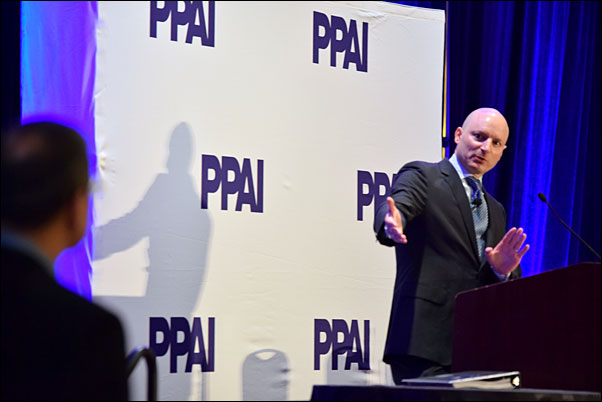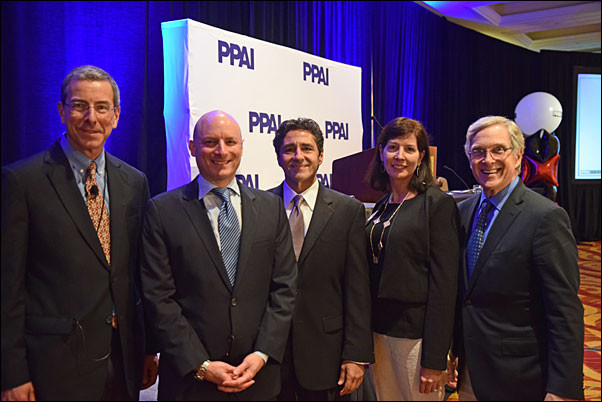The speakers at this year’s PPAI Product Responsibility Summit ranked as some of brightest and most knowledgeable in the compliance world, but the showstopper was Wednesday’s keynote speaker, Consumer Product Safety Commission Chairman Elliot F. Kaye.
Kaye, who became the 10th CPSC chairman in 2014, addressed his audience of compliance managers, procurement specialists and promotional products business owners, openly and directly for about 10 minutes and then spent the rest of the hour-long session answering questions on state lead limits, online sales, penalties, imports, future concerns and more posed by Product Responsibility Action Group Chair Gene Geiger, MAS+, along with audience members.
“I want to tell you how impressed I’ve been of the work PPAI does and continues to do in the area of safety and compliance,” Kaye said from the podium. “The requirements you have in place are incredibly impressive, the materials are thorough, well-written and right to the point and I can tell you as a regulator I’m deeply appreciative of the ownership this association has taken on safety and compliance. I applaud it.”
He spoke at length about two areas of public policy in which the agency is involved: chemical exposure/consumer products (toys and children’s items plus the flame-retardant chemicals used in upholstered furniture), and brain injury in sports.
As chairman and father to two young boys, he expressed his concern about both issues and talked about what the agency is doing to resolve them. “The CPSC has historically played a small role with other agencies on this issue and I’ve tried to ramp up our role. It’s a somewhat lonely mission to try to talk about what we can do with our authority and our resources to try to help parents in resolving some of this uncertainty,” he said.
Kaye noted three areas he expects the agency to look at in the near future: The interaction between wearable tech and bodies; remote control devices that control home appliances such as space heaters, and products produced by 3D printing. “This one is most challenging from regulatory perspective,” he said. “Who’s to blame for giving away or selling a toy that is created in someone’s home?”
He expects to hold a roundtable in the spring to talk about these areas and consider how the commission can do its job without getting in the way of technological developments.
Asked for his advice on avoiding CPSC fines, Kaye recommends having good systems in place.
When asked what misconceptions the public might have about the CPSC, he answered thoughtfully. “We are all the same as you are. We have the same problems you do, we have kids. We just want to have a safer world and not have to worry about products harming people.”




